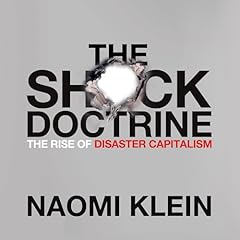
The Deficit Myth
Modern Monetary Theory and the Birth of the People's Economy
No se pudo agregar al carrito
Solo puedes tener X títulos en el carrito para realizar el pago.
Add to Cart failed.
Por favor prueba de nuevo más tarde
Error al Agregar a Lista de Deseos.
Por favor prueba de nuevo más tarde
Error al eliminar de la lista de deseos.
Por favor prueba de nuevo más tarde
Error al añadir a tu biblioteca
Por favor intenta de nuevo
Error al seguir el podcast
Intenta nuevamente
Error al dejar de seguir el podcast
Intenta nuevamente
 Exclusivo para miembros Prime: ¿Nuevo en Audible? Obtén 2 audiolibros gratis con tu prueba.
Exclusivo para miembros Prime: ¿Nuevo en Audible? Obtén 2 audiolibros gratis con tu prueba.
Elige 1 audiolibro al mes de nuestra inigualable colección.
Acceso ilimitado a nuestro catálogo de más de 150,000 audiolibros y podcasts.
Accede a ofertas y descuentos exclusivos.
Premium Plus se renueva automáticamente por $14.95 al mes después de 30 días. Cancela en cualquier momento.
Compra ahora por $25.19
-
Narrado por:
-
Stephanie Kelton
-
De:
-
Stephanie Kelton
A “clear and vigorously written book” (Foreign Affairs), from the leading thinker of modern monetary theory, that delivers a bold new understanding for how to build a prosperous society
Stephanie Kelton's brilliant exploration of modern monetary theory (MMT) dramatically changes our understanding of how we can best deal with crucial issues ranging from poverty and inequality to creating jobs, expanding health care coverage, climate change, and building resilient infrastructure. Any ambitious proposal, however, inevitably runs into the buzz saw of how to find the money to pay for it, rooted in myths about deficits that are hobbling us as a country.
Kelton busts through the myths that prevent us from taking action: that the federal government should budget like a household, that deficits will harm the next generation, crowd out private investment, and undermine long-term growth, and that entitlements are propelling us toward a grave fiscal crisis.
MMT, as Kelton shows, shifts the terrain from narrow budgetary questions to one of broader economic and social benefits. With its important new ways of understanding money, taxes, and the critical role of deficit spending, MMT redefines how to responsibly use our resources so that we can maximize our potential as a society. MMT gives us the power to imagine a new politics and a new economy and move from a narrative of scarcity to one of opportunity.
Los oyentes también disfrutaron:




















Reseñas de la Crítica
"In a world of epic, overlapping crises, Stephanie Kelton is an indispensable source of moral clarity. Whether you're all in for MMT, or merely MMT-curious, the truths that she teaches about money, debt, and deficits give us the tools we desperately need to build a safe future for all. Read it--then put it to use."—Naomi Klein, author of On Fire: The Burning Case for a Green New Deal
"Stephanie Kelton convincingly overturns the conventional wisdom that federal budget deficits are somehow bad for the nation. ...Kelton argues that our government's inability to provide for citizens isn't due to a lack for money; instead, our leaders lack political will."—Farhad Manjoo, The New York Times
"Clear and vigorously written book."—Foreign Affairs
"She has succeeded in instigating a round of heretical questioning, essential for a post-Covid-19 world, where the pantheon of economic gods will have to be reconfigured."—The Guardian
"Kelton and her colleagues have brought a great many non-economists into the economic conversation in a way that no other contemporary branch of heterodox economics has been able to....[Sh]e's dead right about a central political fact of our times: A large, active public sector is more needed today than ever, and unfounded fears of public debt are a big reason we haven't gotten it. Which means her eloquent, accessible book is performing an important public service."—The American Prospect
"A robust, well-reasoned, and highly readable walk through many common misunderstandings. A 'must-read' for anyone who wants to understand how government financing really works, and how it interplays with economic policy."
—Frank Newman, former deputy secretary of the Treasury
—Frank Newman, former deputy secretary of the Treasury
"Kelton certainly offers food for thought at a time when governments are spending eye-watering sums to mitigate damage from the coronavirus pandemic."
—Spear's Magazine
—Spear's Magazine
"Stephanie Kelton is among the most prominent of the dozen or so economists associated with MMT. Her new book The Deficit Myth is intended to bring MMT to a broader audience. In addition to an impassioned call for a bigger, more active public sector, The Deficit Myth contains a number of distinct economic arguments."
—The American Prospect
—The American Prospect
"The big thing she gets right is in the way she structures her book around our current beliefs. In addressing our current understanding of how the world works - interpretations she identifies as myths - Kelton leads us step-by-step towards a new understanding of how federal spending works."—Inside Higher Education
Las personas que vieron esto también vieron:


















2. taxes are used to control inflation
3. a progressive tax is used to diminish influence
4. a jobs program would provide billions of hours toward the public good
This would solve most of our current problems
you won't be the same
Se ha producido un error. Vuelve a intentarlo dentro de unos minutos.
Enlightening economic knowledge.
Se ha producido un error. Vuelve a intentarlo dentro de unos minutos.
Understanding of how a fiat currency should work.
Se ha producido un error. Vuelve a intentarlo dentro de unos minutos.
The financial world will be totally different after you finish this book.
A must read book
Se ha producido un error. Vuelve a intentarlo dentro de unos minutos.
BUT, when the light goes on, it powerfully illuminates both the outmoded, imprisoning, effects of traditional thinking about money and deficits, AND the liberating, humane alternative.
Highly recommend!
MMT, an idea whose time has come (hopefully!)
Se ha producido un error. Vuelve a intentarlo dentro de unos minutos.


